Is politics beyond satire?
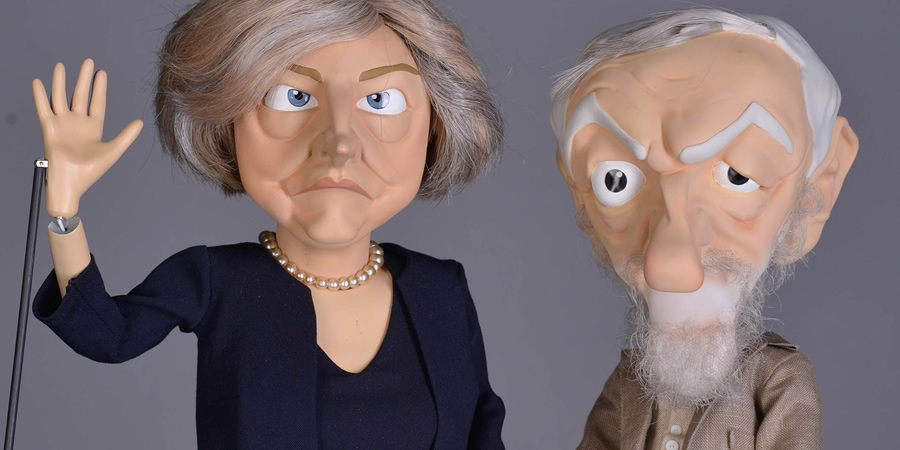
The disruptive, combative political landscape created by Brexit and the election of Donald Trump is, on the face of it, a gift for UK television satirists and their venerable tradition of biting and often brutal parody.
While Theresa May's blandness may do little to whet a satirist's appetite, Boris Johnson and Nigel Farage bring larger-than-life personas to Brexit. And Trump is, well, Trump.
For Jimmy Mulville, Managing Director at Hat Trick Productions, maker of Have I Got News For You and Revolting for the BBC and The Fake News Show and Power Monkeys for Channel 4, it's all about concentrating on the personalities. "Brexit is a sort of ongoing sitcom", he says. "Trump often defies satire because he's almost a parody of himself."
Satire is, according to the Oxford English Dictionary, the use of humour, irony, exaggeration or ridicule to expose and criticise people's stupidity or vices, particularly in the context of contemporary politics and other topical issues.
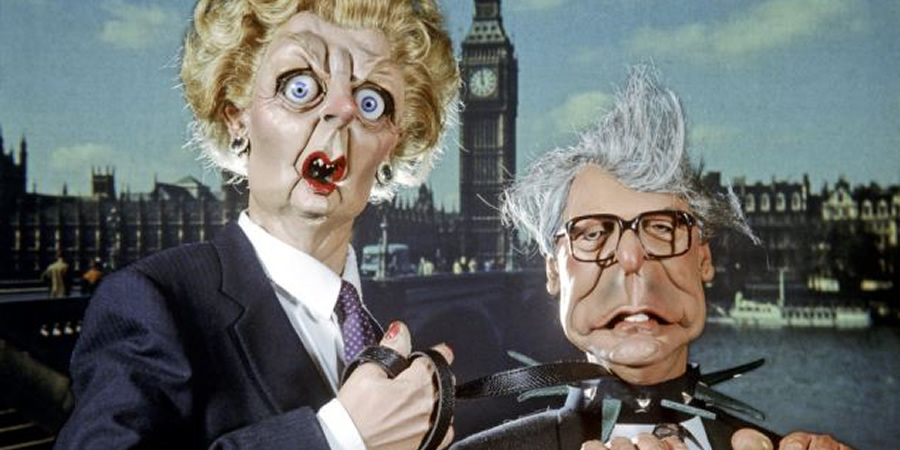
One of British TV's finest hours was the era of Spitting Image, when the political landscape was dominated by big characters such as Margaret Thatcher and Ronald Reagan. The unrelenting latex puppet lampoonery achieved plaudits and initially healthy ratings for its satirical efforts. But, in 1996, ITV cancelled the show created by Peter Fluck, Roger Law and Martin Lambie-Nairn. Several of its top writers and impressionists (such as Rory Bremner and John Sessions) had left and Thatcher, too, had exited the main political stage.
A big challenge for the 21st Century televisual heirs of Spitting Image, including ITV's Newzoids, is that Brexit and Trump have taken up permanent residence on the news agenda.
"The problem with these two big, lumpy stories sitting there, dominating the news agenda, is how to make your show interesting week in and week out", says Mulville. Commissioners and creators "have to be quick, nimble and to adjust" as Brexit and Trump continue to evolve, he adds.
Dominating the news agenda isn't necessarily all bad. "Our tradition of news and impartiality in this country means that we have an incredibly informed audience, which is very alive to, and has an appetite for, satire" says Ed Havard, head of Entertainment, TV Events and Sport at Channel 4, who recently shepherded Fake News Week to the broadcaster. He was previously editor of the BBC's Question Time.
"We have very, very good news, so satire just has to be more informed and targeted" is how Ian Hislop, the HIGNFY captain and long-standing editor of Private Eye, sees it.
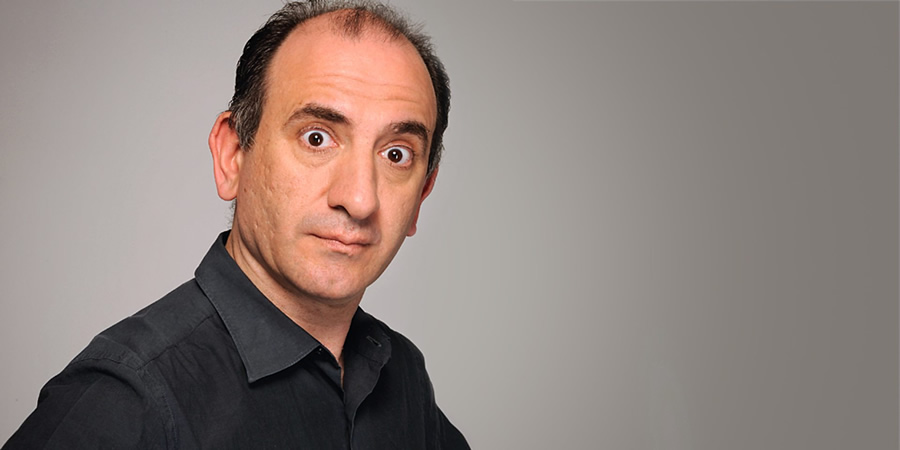
"If you want to change things [through satire], you have to go out and campaign, and write and argue" says Armando Iannucci, the writer, producer and director, who skewers politics and puffery with shows such as The Thick Of It and Veep.
"Let's examine what people have said and where they may have misspoken or said strange things or where the logic has broken down" he continues. "Or where someone has said one thing and then ended up saying a completely different thing a year later."
Shane Allen, comedy commissioning controller at the BBC, says: "We'll always need a satirical eye to filter things and help us process whatever madness is going on in the world."
The BBC is working on some quick-turnaround shows, including Frankie Boyle's American Autopsy and Jack Dee's HelpDesk. There will be another edition of Charlie Brooker's Year Wipe at the end of 2017. The emphasis is on quality, not quantity.
"People such as Charlie Brooker and Frankie Boyle have got very authored, strong world views and they can sometimes really help us [the audience] badge our opinions and what we think about an issue," suggests Allen. He is talking to Boyle and other undisclosed talent for satirical show ideas. "We have an onus to focus on our own domestic issues, such as Brexit, as well as Trump. From Brexit to lettuce shortages, it's ripe times for satire," Allen believes.
"We have a multi-genre approach to satire" says Channel 4's Ed Havard. "It's not just studio-based entertainment, it's many genres piling in to try and find effective ways of delivering satire on Trump."

Havard argues that there are not enough female voices on television, let alone in satirical comedy. He doesn't rule out the possibility of a female-driven show airing sometime in the future: "Katherine Ryan on The Fake News Show was brilliant and absolutely note perfect on Trump. We are always looking for great female voices that can turn their attention to satire."
Sara Pascoe (Frankie Boyle's American Autopsy), Aisling Bea (8 Out Of 10 Cats) and Roisin Conaty (Russell Howard's Good News) are among those female voices that have done so previously via turns on topical shows.
Mulville believes that he is not doing his job correctly if his programmes fail to get under people's skin. One of his proudest professional moments came when Cherie Blair told him that she hated what he did.
"She thought HIGNFY damaged the good name of politics", Mulville recalls. "I thought her husband, Tony, and his cabinet were doing a pretty good job of that on their own."
The Trump administration is the elephant in the satirists' writers room. Is the thrice-married billionaire businessman and long-running reality TV star beyond satire? He appears to revel in his own ridiculousness.
"It is sort of funny and sort of horrific", says Iannucci of Trump's presidency so far. "The only things we know are that he is tremendously thin-skinned and that it would be good for [the careers of] John Oliver or Charlie Brooker to do or say something that results in Trump tweeting about them for 24 hours."
Expectations are high on both sides of the Atlantic that the UK will come up with a fittingly robust satirical response. In February, Michael Steele, a former Chair of the Republican National Committee, extolled the virtues of satire when he told the Observer that he "learned more about British government through Monty Python than anything else."
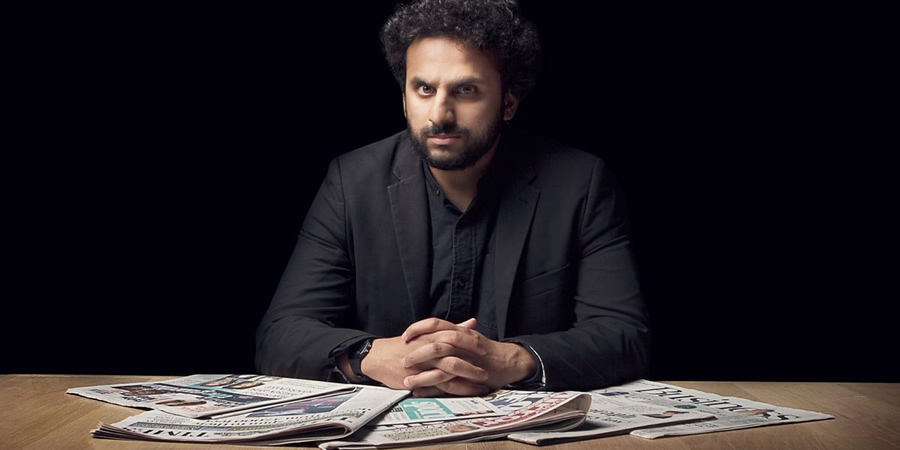
"Trump is a comedy gift" says Kate Phillips, entertainment commissioning controller at the BBC. "With what he says in his own tweets, he writes his own comedy scripts. [So] we have to raise our game a bit when we're looking at how we do satire."
In addition to commissioning series that include HIGNFY and Mock The Week, Phillips ordered three pilots to road test how best to handle Trump. It was announced Friday that The Mash Report has been commissioned for a 10-part series hosted by Nish Kumar (pictured above).
Iannucci emphasises that Trump is "not a monster of our making, rather a monster of America's making." Trumpfocused satire is thriving on US television. Saturday Night Live (SNL) is leading the offensive, along with Last Week Tonight, hosted by UK-born comedian John Oliver, Full Frontal With Samantha Bee, Real Time With Bill Maher and The Daily Show, presented by Trevor Noah.
Last month, Alec Baldwin's scathing portrayals of the commander-in-chief have helped propel SNL's ratings to a 22-year high. An SNL segment featuring Melissa McCarthy's cutting impersonation of Trump's White House press secretary, Sean Spicer, has been viewed 25 million times on YouTube.
McCarthy's portrayal is held up as one of the fresh and inventive ways to tackle Trump and his presidency.
"The Melissa McCarthy/Sean Spicer SNL sketch cut through so much because it was new and really unusual to get a woman to satirise quite an aggressive male performance," says Havard. "It was a very clever way of trying to find something new to say about something that was already quite familiar."
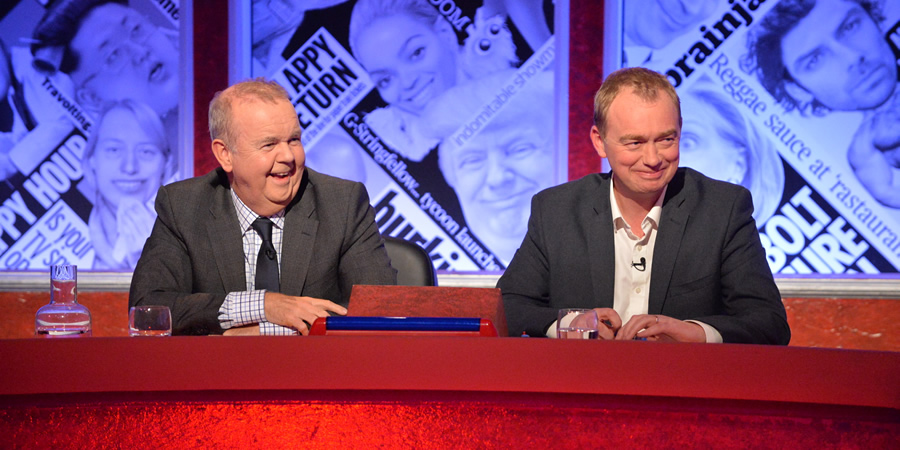
In the UK, sales of Private Eye are up 9% year on year. Its Christmas issue was the biggest seller in the title's 55-year history, shifting 287,334 copies, according to ABC figures.
Hislop foresees a different problem for UK programme-makers, and urges them to get their pitches in and the programmes made.
It may be that Trump doesn't last too long in the job. "We know what television lead times are like; they might find he's not there [in a few months]," he explains, with an optimistic smile. "I would say: 'Be quick, get in and enjoy the joke'.
"Bringing down governments is what you are meant to do with elections, not panel shows," adds Hislop. "But there is always a point to satire, even if it just to make you feel better."
This article was written by Stuart Kemp, a freelance television, film and culture writer. The original article features in the March issue of the Royal Television Society's members magazine, Television. To read the magazine in full visit rts.org.uk
Help us publish more great content by becoming a BCG Supporter. You'll be backing our mission to champion, celebrate and promote British comedy in all its forms: past, present and future.
We understand times are tough, but if you believe in the power of laughter we'd be honoured to have you join us. Advertising doesn't cover our costs, so every single donation matters and is put to good use. Thank you.
Love comedy? Find out more
